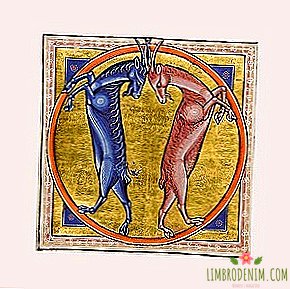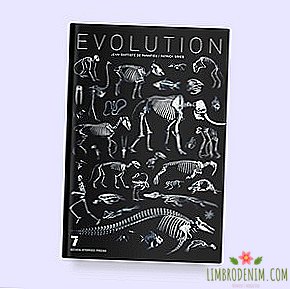Woe from Wit: Bad Advices from Classics of Russian Literature

alexander savina
We are accustomed to perceive classical literature as something eternal and unshakeable, forgetting that every classic novel is first and foremost a product of its time, created in a specific context. Life does not stand still, and, recognizing the authority of the classics, yet you should not unconditionally rely on their worldview and on the principles followed by the characters they create. After all, it is not a secret that, having “read”, we sometimes unnecessarily dramatize events - or perceive patterns as patterns that are incompatible with modern life.

Would be honor, would be honor
Classical literature is tenacious and causes a response, not least because it talks about eternal questions; At the same time, one should not take the behavior patterns of the characters as a textbook of life. For example, for the characters of the past one of the main values was honor - it meant not only a moral core (how we perceive this concept today), but also a certain set of rituals - often completely cannibalistic. To save the honor, as a rule, was offered by the blood - either his own or the offender, causing him to a duel. The very tradition of shooting is connected with the cult of force and the romance of violence, and in the modern izvodo comes down to "come out, let's talk." This is how the idea of a certain "male honor code" is formed: Onegin is shot with Lensky, Pechorin with Grushnitsky, Pierre Bezukhov with Dolokhov and so on. The case is quite usual for the XIX century: not only Pushkin or Lermontov's heroes died in duels, but they themselves.
Women had no easier way, including in literature: the loss of honor here becomes a real tragedy. First of all, because moral purity rhymed with physical: the ideal girl, according to patriarchal attitudes, must be innocent - otherwise she will not be able to become a good mother and wife. This explains, for example, the horror of the hero of "Nevsky Prospect", who dreams of family life with his beloved and goes crazy when he realizes that she is wallowed in the "abyss of depravity". A young heroine who has lost her honor often does not see any other way out than to commit suicide - for example, the protagonists of "Poor Lisa" and "The Thunderstorm" do so. But, taking such a model of behavior as a model of moral purity, we involuntarily program ourselves for injuries when confronted with reality.
Women's purpose - to be a mother and wife
Until complete equality between men and women is still far away, and a century and a half ago, this idea seemed completely impossible. It is not surprising that this was reflected in classical literature: there are few free heroines who independently make decisions about their fate, and the woman, acting within the traditional role, remains the ideal. Virtually the only way to ensure the existence of a woman in the XIX century for a woman was marriage - so many heroines, like Pushkin’s Tatyana Larina, marry without love, simply because the time has come and a profitable party has appeared. A similar fate for Princess Volkonskaya from Nikolai Nekrasov’s Russian Women poem: she married at the insistence of her father, practically did not know her husband before marriage, and rarely saw him after — but she left her relatives and little son anyway to go to her husband link as demanded debt.
Especially often the installation that the main task of a woman is to have children and take care of the family is traced in Leo Tolstoy. In War and Peace there are two opposing heroines: Sonya is “empty flower” (it’s not known how to interpret this definition exactly, but the most frequent version is that she didn’t marry or give birth to children) and Natasha Rostov. In the end, the living and strong heroine finds happiness precisely in family life: in the novel's finale, Tolstoy calls her "a strong, beautiful, and prolific female." Tolstoy has a heroine who refuses to take care of her family and child because she has fallen in love with another - Anna Karenina. The writer emphasizes that she is selfish, and because of this, she is overtaken by retribution: she is rejected by the light, she destroys the relationship with Vronsky and eventually ends up with herself, unable to endure the torment.
Fortunately, there are heroines who rebel against such a role, and writers who condemn the reduction of the role of a woman in society only to motherhood. For example, Alexander Ostrovsky, whose Larissa in "Dirt-free" speaks directly to what others perceive her as a thing.

True love can be only one
This idea is popular not only in the classical literature - a good half of the romcoms are still built on it. It is logical that the idea that there can be only one “real” love appeared in an era when it was impossible to start a relationship without marrying, and the divorce after the wedding in the church was absolutely unacceptable - regardless of whether the groom managed with the bride get to know each other before marriage. At the same time, there are not so many examples of happy love in Russian classical literature, such as Masha Mironova and Pyotr Grinyov from The Captain's Daughter, or Rodion Raskolnikov and Sonya Marmeladova from Crime and Punishment - and more often than not, heroes need to overcome serious ordeals. Divorces in nineteenth-century literature have no place in principle: although many heroes are unhappy in relationships, often the only way out for them, as in society as a whole, is leaving without a formal marriage breakdown - like in Pierre Bezukhov and Helen Kuragina or Anna and Alexey Karenins .
In more modern works, the idea of a single “real” love is transformed: heroes, like, for example, Yuri Zhivago from Pasternak’s novel, Grigori Melekhov from The Quiet Don, or Bulgakov Margaret, may have several lovers or spouses - but there is one main love, tragic and all-conquering. This idea fits well with the novel about the fate of a person in a crucial era, but these days can be more confusing. Yes, we have the full right to relations with different people (sometimes even at the same time), but we are still gnawed at the idea of meeting with “that same” - and often we don’t allow ourselves to be completely immersed in relationships, because we are waiting for someone new , or can not move on after the break with the "only".
Parents - unquestioned authority
In noble families there was a clear hierarchy: the father is the head of the family, the manager of her affairs and decides the most important issues, then the mother who does housework and household issues, and only at the very end - the children who, although they continue the family and affairs of the parents, to a certain age (and more often until they create their own family) do not have the right to vote. Russian writers for the most part came from the nobility - and often broadcast this installation in their works. In the classic novels, elders have unquestioned authority, and most often they decide the fate of children. This is especially true of marriage issues: the opportunity to marry for love, and not at the request of the parents who choose the most profitable party for the child, is real luck. Like, for example, Alexei Berestov and Liza Muromskaya from Pushkin's story “The Lady-Peasant Woman”: the parents of the heroes, having become friends, decide to marry the children, and that the heroes have fallen in love with each other before, is pure coincidence.
There are in Russian literature and oppositions between the older and younger generation - such as, for example, in "Fathers and Children" or "Woe from Wit." But here we are not talking about the conflict of “fathers” and “children” by itself, but about the collision of the worldviews of the older and younger generation, where the “children” refuse to bow down before the old authorities. Parents, their life experience and opinion certainly deserve respect, but none of us is obliged to live in accordance with other people's ideas and ideals. Being able to make free choices is great.

After 30 years of life there is no
One of the important characteristics that eludes our attention when we read classics in school is the age of the heroes. Our life has changed, and the age frame has changed - and if somewhere two centuries later the age of heroes seems to be absolutely normal (the main heroine of “Poor Lisa”, for example, around 17 is the time for first love), then somewhere it is shocking: Dunya from the story “The Stationmaster”, which the young officer takes with him and which soon becomes the mother of his three children, is about 14.
Even more striking is the age of the characters, which the writers consider to be old: Tatiana Larina’s mother, a “sweet old woman”, should be less than 40 years old (although her exact age is not indicated in the novel); Countess Rostova, whose laughter Tolstoy calls "old woman", is only 45 at the beginning of the novel. At the same time, the writers consider the 30th anniversary to be the boundary of his mature age - and the story of Andrei Bolkonsky, who compares himself with the old dry oak, on which young leaves appeared, is most indicative of and concludes: "No, life is not over at 31 years." And if for a man the 30th anniversary implies a respectable age and respect in the world, then for a woman it means that it is time to step out of business.
The modern reader hardly needs to be explained that one should not be afraid of 30th anniversary and prejudices: the fate of most literary heroes is irrelevant to us also because we are guided by completely different life stages - their borders have changed. And more often to remember that age is a convention, it is useful for everyone.
Photo: 1, 2, 3 - wikipedia




